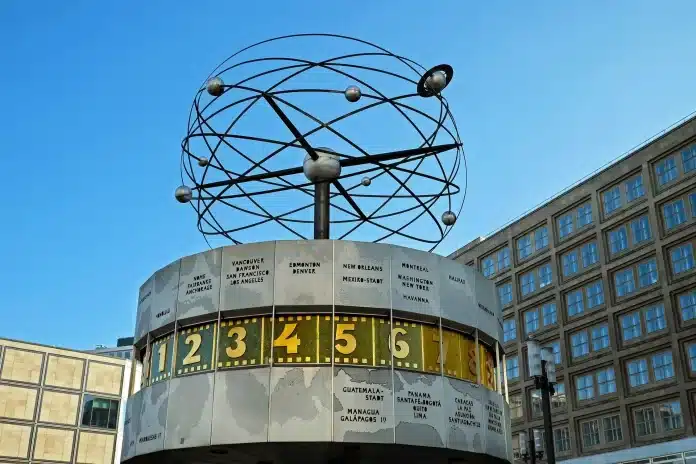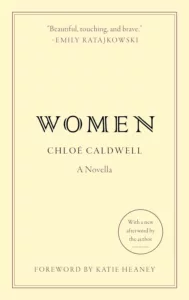“I’m just curious about your soul.” This thought found its way into my journal one December morning. I was sitting in bed, finally alone, when the distant church bell rang, softer than I remembered. My gaze drifted out to the dusty sky. “A cold blanket,” I wrote, “muffles the world today.”
I don’t usually write in this setting. The morning often stirs my thoughts, like beasts awakening from under tree roots. These thoughts tug at me, leaving a scatter of hair in their wake—on my ivory sheets, across the floor, throughout my day, and in the mirror. I can’t stand my reflection. But sometimes, I can’t look away, not even when the electric kettle clicks off. My tea is doomed to turn cold, forgotten until I’m staring at my screen, pondering the amount of hair I lose in a day, with nothing else to write.
That morning, a desire to write kept me sitting in bed. It had started while I was lying down, my thoughts drifting to a story unlike my usual reads—‘The Cafeteria in the Evening and the Pool in the Rain’ by Yoko Ogawa. The feelings it evoked reflected the view outside my studio—stretches of windows distant enough for private viewing pleasure. This view hadn’t changed since I came back to Berlin, except for the twinkle of Christmas lights through a window and dead branches. As I stared, the word ‘evergreen’ buzzed at the tip of my pen.
But my thoughts seemed to get stuck, whether between the pen and the page, or between my thumbs and the screen. Not just the story, but also the person who had introduced it, lingered in my mind. I pulled my phone out from under the blanket, hesitated to text him. It wasn’t gratitude I struggled to put into words, but wonder—a feeling I could never contain. It was like walking with glitter in my hands, leaving a shimmering trail wherever I went. The glitter spilled without my permission, offered to the wind, the sidewalk, even the strangers I passed by. And at night, when I looked back on my paths, I wished for a sweeper. Under the starlit sky, I’d gather these scattered sparkles, just enough to return to my vial and bring them home.
I dropped my phone and wrote a phrase I hadn’t used since my teenage years: “I’m wonderstruck.”
We had met at a writing group, back when hair was the last thing on my mind. Our apartments shared a U-Bahn station, separated only by a boulevard, so we often took the train home together. Thoughts and dreams poured out during these rides; conversations flowed the way time rushed as we were about to miss our train. “I love it,” he said about the dissonance of Alexanderplatz station’s post-war architecture. “These ups and downs remind me of Sonic the Hedgehog, the video game.”
The scene came to life as we dashed across the platform. Tiles pixelated. Beeps quickened. We slipped through the closing door with supersonic grace. Later, as we stepped out onto our station, drifted toward opposite ends and up separate stairs, pixels settled like confetti. I marveled at the sight, comfortable in the mystery.
Another church bell echoed through the hazy sky. I noticed a crack on my phone screen, but it was just a hair. I flicked it away, only to pull out another one from my mouth.
One midnight, walking home together from a samba evening, the wonder man asked what it was this thing between us. The air was fresh, the sky clear, yet I danced around the topic as if we were still on the dancefloor of Café Atopia. In response to my ambivalence, he mentioned Wong Kar Wai’s film, ‘In the Mood for Love,’ and suddenly we were enveloped in a cinematic haze, a curtain of cigarette smoke dividing us. Goodnight bid with glances, the boulevard dissipated into glamorous alleyways, bringing me home.
Reading ‘The Cafeteria in the Evening’ felt like peering through a gap in the cigarette curtain. To my surprise, the story took me to another time, an evening at a wine bar, where my ex and I sat surrounded by midsummer fairy lights. Like the two strangers in Ogawa’s story, all remained between us was anguish. It was our last in-person encounter, a goodbye before he left the States after losing the visa lottery. As we delved into the past, two different versions came to light: one where he believed I hated him, and one where I had failed at communicating. A few glasses in, his eyes glinted rosy. His voice cracked as he asked, “Where was the feedback all this time?”
The McKinsey card he used to pay for our drinks lay clipped on the table.
I stared back, spellbound. My vision swirled, like looking too long into a rose. Words spilled out of my lips, a flurried speech about how our differences—or perhaps just youth—had made raw honesty impossible between us. And when I stopped talking, he leaned in. His hand came so close to my face that I could feel the force of my breaths, the stirring of anguish. His touch warm and raw.
If I hadn’t been sitting frozen, I would have registered his fingers brushing my hair. I would have felt the soft weight of those long, thick strands. Despite a gentle sway, they remained firmly rooted as if vowing never to shed, while my ex fought back his tears.
Instead, my spine stretched, unnaturally stiff. So did the distance between my waist and the high-rise of my girlfriend jeans. Although they were made to sit lower, I preferred to wear them cinched at the waist, to see how far I could extend the tail of my belt. This reminded me of the delicate parts of my body I overlooked. They were like tender moments, unacknowledged as I plowed my way through life and kept myself from falling apart. As my ex gave me our last-ever hug that evening, I didn’t budge. Every fiber taut. My goodbye bounced off his dazed look as they had a few years before—when I had ended our relationship at Café Milano.
Café Milano, too, had lights strewn across the wall. Each bulb twinkled like a figment of memory. The campus nearby held fairy-tale spots: a rose garden, iron gates, moonlit terraces. Once, the Philosophy Hall had turned into our giant sandcastle. In a dimly lit nook overlooking Strawberry Creek, we made love. I had just returned from my study-abroad summer in Berlin, the city where, a decade later, I found myself typing in the dark, “I saw fire in our fate.”
December morning came Berlin-style—in wisps of snow. My writing stalled. I reread Ogawa’s story and collected the strands on my bed, fashioning them into beautiful swirls. My scalp tingled. Inspiration pulsed like electric drumbeats across my crown, urging me to reach out—to my ex-boyfriend, my old self, to the man from the writing group.
“Soon,” I promised my journal, “because I felt a long-lost glow I’d been missing like fate.” I missed it like the gaps in my waist, like the sandcastle terrace and the stars that seemed forever etched to the sky.
Two months passed. I still hadn’t kept my promise. A flurry of doctor appointments had swept through my calendar, and I was stuck in a crowded U-Bahn. In a bus with my head pinched in a saran wrap, beneath a polka-dotted shower cap beneath a hood. My head still tingled. But the sensation wasn’t the gold flash of impulse. It was the silver of injection needles. The tiny red marks they left on my skull resembled constellations, burning brighter than the phone screen as I confronted the empty inbox. Snow blanketed my view overnight. No point in recovering lost or tracing causes, the doctors said, addressing the mystical nature of auto-immune conditions. “It could be anything.”
My reflection echoed their words until half my hair had fallen—settling on the pillow, the shower drain, on the dustpan—swept up like words taken back too late.
Seated once again before my screen, tea in hand, I put the glow I had felt into words. The thing between me and the wonder man. Unlike the wildfires of my Californian years, it was the glimpses outside my window—the flicker of December spirit over a lifeless tree, the new year buzz in the fog. My Christmas had no crackling fire, just embers. And when January arrived, I would drift through a lonely forest, circling bare patches. Hair would snap like twigs, fall among dandruff snowflakes. Each fall ushered me back to my roots, my studio solitude.
As I write, a question hums in the background: Will I be bald, or is it just my bold imagination?
There’s no answer, just anguish. This is the condition of autoimmunity, of self-preservation.
But there is—and this is—also the promise of wonder. Electricity flows from my head to my fingers, short-circuits millimeters from my heart, and still, I can see glitter drizzle down the sky. Stardusts I’d spend nights, maybe a lifetime, sweeping up.
If my words read like a confession to you, dear reader, it’s because I let them fall—without permission. And if they resonate, then I hope that’s enough—the glimpses of our wondering.
This is how it starts: I’m just curious about your soul.
***
Looking for your next book to read? Consider this…
Women, the exhilarating novella by Chloe Caldwell, is being reissued just in time to become your steamy summer read. The Los Angeles Review of books calls Caldwell “One of the most endearing and exciting writers of a generation.” Cheryl Strayed says ‘Her prose has a reckless beauty that feels to me like magic.” With a new afterward by the author, this reissue is one not to be missed.
***
Our friends at Corporeal Writing continue to offer some of the best programming for writers, thinkers, humans. This summer they are offering Midsummer Nights Film Club: What Movies Teach Us About Narrative. Great films and a sliding scale to allow everyone the opportunity to participate. The conversation will be stellar! Tell them we sent you!

